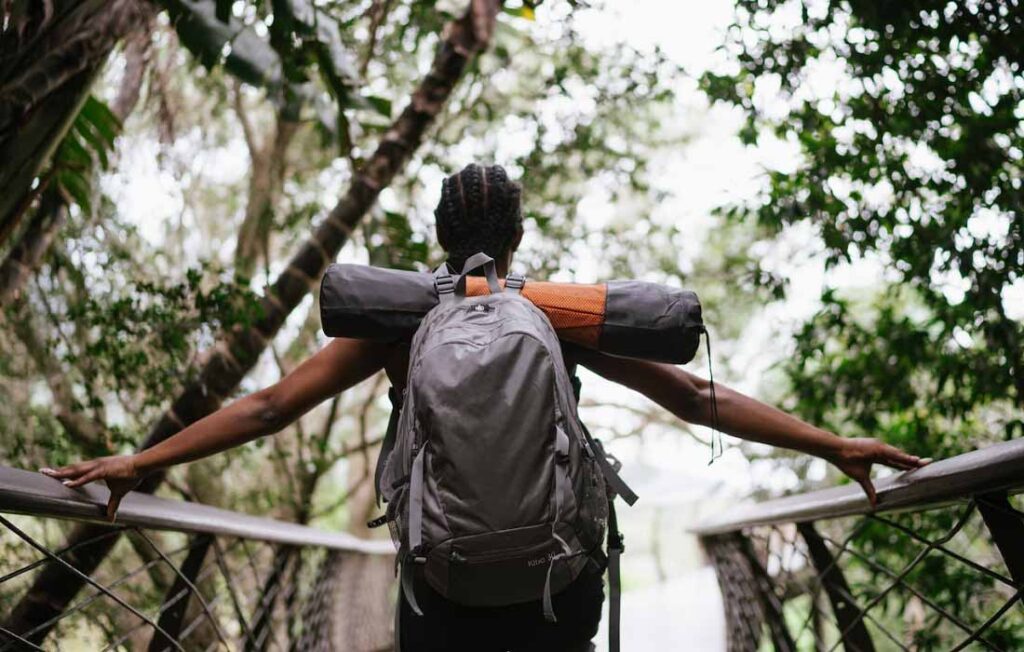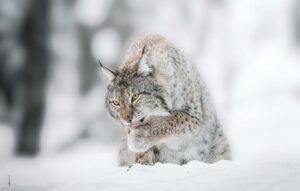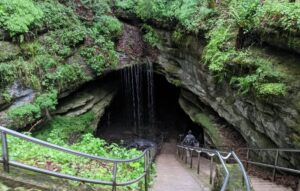Updated on May 23, 2024
As we enter Black History Month, it is important to acknowledge the many Black scientists, civic leaders, conservationists, and activists who have or currently are making significant strides for the environment and our communities. More than that, it is essential that we acknowledge the unique obstacles faced by Black environmentalists and how—as a culture, as an environmental community, and as a global network—we must make space for Black leaders and voices to be heard and, in many circumstances, lead the conversation. This is particularly important for some of today’s most critical environmental issues, such as environmental and climate justice, which disproportionately affect people of color.
A Look at Black Environmentalism
If you asked the majority of Americans who Dr. Martin Luther King Jr. was and to describe his historical significance, you’d likely get a pretty quick and accurate answer. But what about George Washington Carver, Wangari Maathai, and Hattie Carthan? These were Black leaders who were integral in the environmental movement; playing an essential role in steering the world toward how we understand our relationship to the environment today—from agriculture to conservation to human rights (because, yes, there is a HUGE crossover between human rights and the environment). So why is it that we aren’t familiar with their names?
The truth of the matter is, the environmental space is disproportionately white, despite the fact that Black people and communities of color are significantly more vulnerable to and affected by environmental injustices. And despite the critical environmental work done by Black individuals, racial injustices throughout history and those still happening today have been added obstacles faced by the Black environmental community that white peers simply haven’t had.
In addition, when we think of the “environment,” this often conjures up a great number of concepts: sustainability, agriculture, the preservation of natural resources like forests and clean water, wildlife rescue, and so much more. Once you start digging into it, the environment is a very segmented topic, and while Black scientists, conservationists, etc. can be found in every category, an area where Black environmentalism has been making a significant mark for decades is around the concept of space; more specifically, urban space. Who has space, what does this space look like, how readily available is it, and who is it frequently taken from? As the majority of self-reporting Black adults claim to live in urban or suburban areas, this topic directly addresses how Black communities (and other minority communities) are treated; often unfairly. And, as a result this topic has not received the time, attention, and platform it deserves.
So, we’re hoping to help make a difference—even just a little bit. One blog post is not going to change the world, but it will introduce you to some of the incredible individuals who have worked and/or are working to improve our planet and our communities every day.
10 Black Environmental Leaders You Need to Know
In no particular order, please meet…
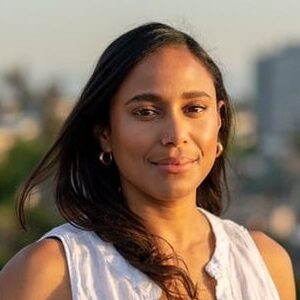
Suzanne Pierre, Ph.D.
Founder, Critical Ecology Lab
Dr. Suzanne Pierre is the founder and lead investigator at the Critical Ecology Lab, an interdisciplinary research nonprofit she created to study the environment and how the “invisible, unjust systems shaping our lives have brought about the current environmental crises.” Current projects include Ecological Scars of Slave Plantations, Community Convenings, Student Collabs, and more. Dr. Pierre is the pioneer of the field of critical ecology. If you’re a fan of podcasts, you can check her out on the hit show Ologies with Alie Ward: Critical Ecology (SOCIAL SYSTEMS + ENVIRONMENT).
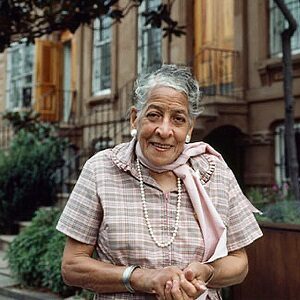
Hattie Carthan
Community Activist and Environmentalist
Hattie Carthan was an activist and environmentalist based in Brooklyn, New York. After moving to the Bedford-Stuyvesant neighborhood, Carthan was dismayed at the lack of trees, and put together a community organization that oversaw the planting of more than 1,500 trees throughout a 100-block radius (at the age of 64, no less!). The organization also received grants to help educate young people about the importance of trees and tree care. Her legacy continues to uphold environmental and food justice as well as urban greening.
After her death in 1984, a community garden was erected in her name. Years later in 2009, that garden expanded and became known as the Hattie Carthan Community Garden Farm, which today is a local farmers market.
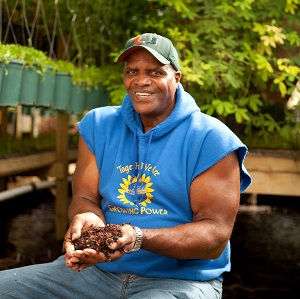
Will Allen
Founder and CEO, Growing Power Inc.
Will Allen’s career didn’t begin in the environmental space. In fact, he started in professional basketball before moving on to a corporate career in sales and then eventually following his passion into farming. He was the founder of Growing Power Inc., a nonprofit farm that modeled 21st-century urban agriculture and is cited as one of the foremost thought-leaders in agriculture, food justice and policy, and farming in a largely urbanized landscape. Now retired, Allen’s dedication to community farmers and sustainable food systems has paved the way for greater conversations about food security and sustainable growing practices in urban environments.
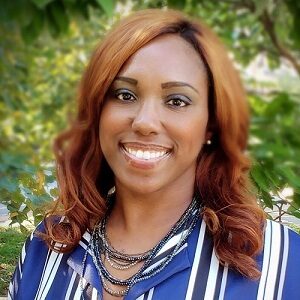
Eboni Hall, Ph.D.
Director of Career Exploration & Development, American Forests*
Working at the intersection of environmental and social justice, Dr. Eboni Hall creates access to and awareness of meaningful tools, resources, opportunities, jobs and people that address the climate crisis. Dr. Hall has spent her career fighting climate change through education, research, advocacy, policy and people development. At American Forests, Dr. Hall mobilizes the Tree Equity movement because climate change disproportionately impacts individuals from socioeconomically disadvantaged backgrounds. She develops curricula, uses approaches to close opportunity and skills gaps, creates unique interactive experiences for young people and emerging leaders and informs policies and actions communities can take to improve human health.
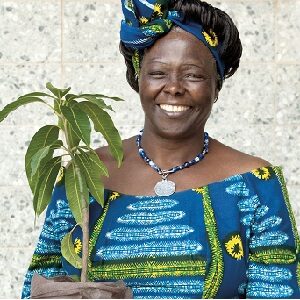
Wangari Maathai, Ph.D.
Founder, Green Belt Movement
A Kenyan social, political, and environmental activist, Dr. Wangari Maathai was the first woman in East and Central Africa to earn a doctorate degree, and the first woman in Africa to win a Nobel Peace Prize for her work. She founded the Green Belt Movement in 1977, which empowers communities—and primarily women—to focus on environmental conservation in order to improve their neighborhoods. One of the organization’s largest initiatives was planting trees. This program was in direct response to reports of food systems and clean water sources drying up and dying off. As a result of these efforts, Kenya saw a major shift toward reforestation and mass action for improving the environment.
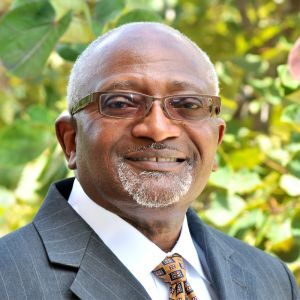
Dr. Robert Bullard
Dean, Barbara Jordan-Mickey Leland School of Public Affairs, Texas Southern University
You may well have heard of Dr. Robert Bullard; after all, he is uniquely coined the “father of environmental justice,” which he gained from being one of the foremost scholars on environmental injustices and racism. Bullard played key roles in the creation of the EPA’s Work Group on Environmental Equity (today known as the Office of Environmental Justice) as well as the 1991 First National People of Color Environmental Leadership Summit. He also Chaired the Health and Research subcommittee of the National Environmental Justice Advisory Council. Today, Dr. Robert Bullard is a Distinguished Professor of Urban Planning and Environmental Policy and the Director of the Bullard Center for Environmental and Climate Justice at Texas Southern University.
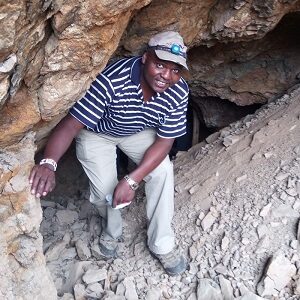
Paul W. Webala, Ph.D.
Chair, Bat Conservation Africa
Member, Science Advisory Committee, Bat Conservation International*
Dr. Paul Webala is a Senior Lecturer of wildlife biology at Maasai Mara University in Kenya where he also sits as Chair of Bat Conservation Africa. Through his research, he studies bats as a representative for mammal abundance in human-dominated environments. As a community ecologist, he studies the influence of different species on one another when sharing space; a critical field of study when determining how humans influence the lives of species around us. Dr. Webala’s ongoing research is helping with bat conservation efforts in Africa and in the United States.
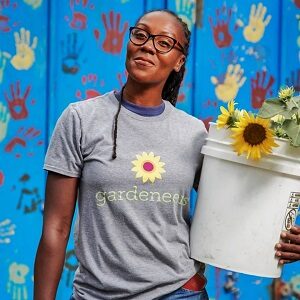
Selma Sims
CEO and Head Grower, Gardeneers*
Selma Sims is CEO and Head Grower at Gardeneers, which provides the only full-service school gardens in Chicago. The organization maintains gardens at 17 schools in the city and hosts more than 1,700 middle school-aged participants, teaching students about sustainable agriculture and healthy eating. By engaging students and school staff, Sims aims to help educate on critical topics like food and health inequities. In addition to her work at Gardeneers, Sims also serves on the board of Advocates of Urban Agriculture and is a member of the Agricultural Equity and Food Insecurity Council among others.
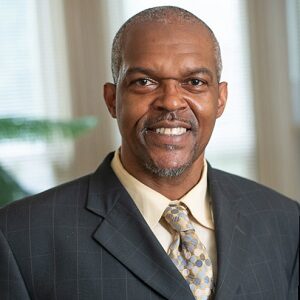
Galen Hardy
Detroit Program Director, Michigan Environmental Council*
In his work as Detroit Program Director for the Michigan Environmental Council, Galen Hardy represents the environmental needs and interests of Detroiters in the state’s capital. He primarily works alongside grassroots organizations and leadership to create policies that encapsulate the best interests of all people of Detroit. And his love of serving Detroit goes back even earlier, having worked with other environmental orgs in the city such as Zero Waste Detroit as well as the community-empowerment organization Focus:HOPE. Hardy currently sits on the board of the Great Lakes Renewable Energy Association.
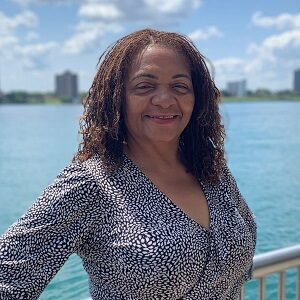
Dr. Adrienne Hollis
Vice President of Environmental Justice, Public Health, and Community Revitalization, National Wildlife Federation*
Recently appointed as the Vice President of Environmental Justice at the National Wildlife Federation, Dr. Adrienne Hollis has based her career in addressing issues of environmental inequalities and will be helping NWF spearhead new initiatives to address climate and environmental justice issues throughout the United States. Not just an environmental justice expert, Dr. Hollis is also an environmental lawyer and toxicologist. In the past, she has worked as a project attorney for Earthjustice as well as the Director of Federal Policy at WE ACT for Environmental Justice. She currently sits on the boards of the Endangered Species Coalition, EPA’s Clean Air Act Advisory Committee and its Board of Scientific Counselors’ Climate Change Subcommittee.
*We’re proud to call these organizations EarthShare Nonprofit Partners
